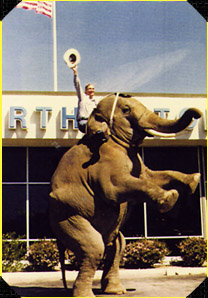Are you going to speak at South by Southwest (SXSW) in March 2014? The annual tech, film and music conferences will soon be announcing their line up for presentations and panels. This is a giant conglomeration of conference activities and being selected to present can bring amazing opportunity (and fun, too).
However, too many of those who will take the stage at this event (and other events all over the world) will suck. Yep, they will range from average to awful as speakers. There will be little preparation, they will not be audience focused, and many will attempt to "wing-it". The actionable information and inspiration the people desire will be missing, and far too often attendees will be left thinking "that break-out session was BLAH".
Speaking at a major event brings opportunity to present yourself as an expert, but if you are awful at how you communicate with the audience you will not only miss this opportunity, but you can crater your reputation. A great topic is not enough. I have watched many successful and smart business professionals bore an audience.
Just because someone is smart or has done something cool, it does not mean they belong on stage. We live in a polite society, so most will never hear the feedback of what the audience really is thinking. They will be told "great speech" or "nice job", and leave feeling they rocked the house.
If you are going to speak at SXSW in 2014 you need to start thinking NOW about how to ensure you are not one of the many presenters who will SUCK as a speaker. This conference has a tradition of people walking out of sessions that do not meet their needs, and nobody wants to see their audience pouring out of their breakout session ten minutes after they being.
Join at Toastmasters group, hire a coach, and/or practice at least a dozen times in front of a live audience and video camera. If you have submitted a presentation idea, and are selected to present, this is a commitment you owe to your audience. It is selfish to "wing it", and it is a crime to be horrible when you could have taken steps to improve in the six months before arriving in Austin, Texas for SXSW.
Join at Toastmasters group, hire a coach, and/or practice at least a dozen times in front of a live audience and video camera. If you have submitted a presentation idea, and are selected to present, this is a commitment you owe to your audience. It is selfish to "wing it", and it is a crime to be horrible when you could have taken steps to improve in the six months before arriving in Austin, Texas for SXSW.
The best TED speakers are said to invest 45-60 hours in preparation for their talk. My guess is that the majority of speakers at SXSW (and most other events) do not invest much time in practicing their talks.
If you do not care, do not sign up to speak!!!
If you do not care, do not sign up to speak!!!
If you are going to be a speaker at SXSW 2014 and you stumble across this post.... PLEASE care about your audience and do not suck on stage!!!
Have A Great Day
thom singer















